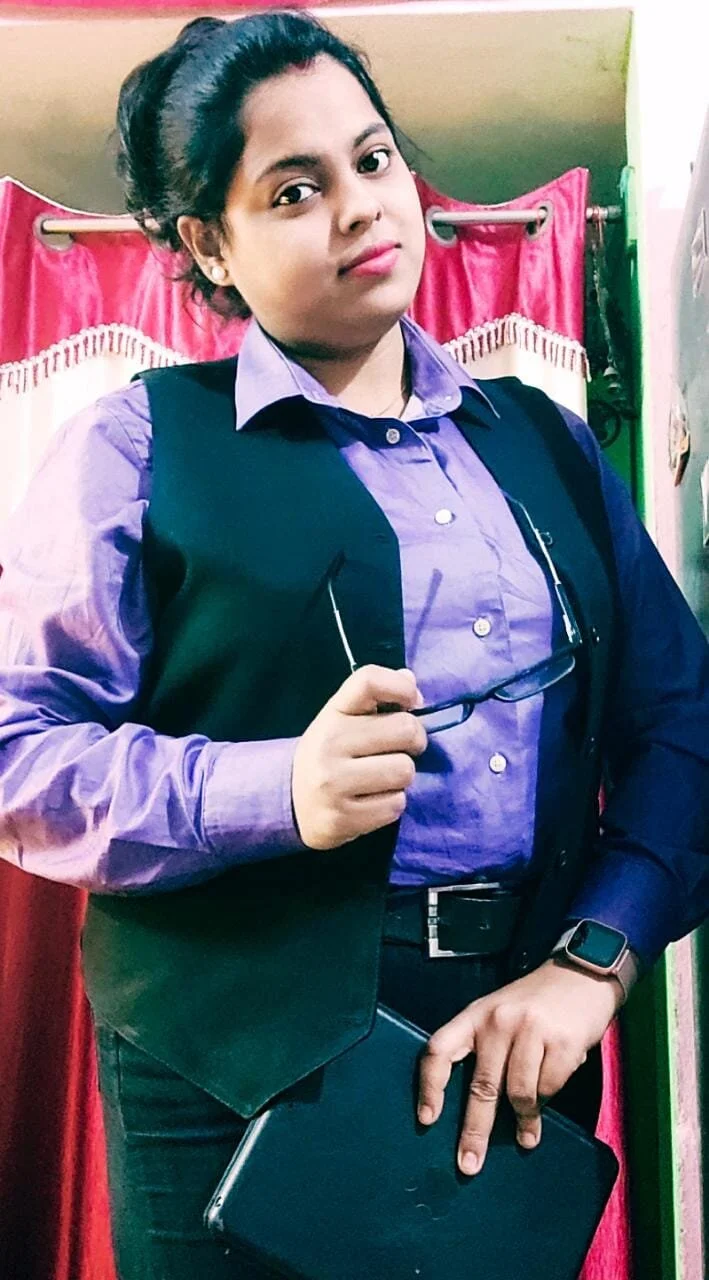Covid, Conflict, and Conciliation, by Anasuya Chakraborty, Kolkata
Born in Lucknow, Lucknow, Uttar Pradesh, raised in Delhi and Kolkata, and currently living in Kolkata, West Bengal, Anasuya is a police officer who describes herself as disciplined, dedicated, and diligent.
March in the city has always been a brooding month. Days get longer, with everyone preparing to bid adieu to the leftovers of winter. But March 2020 was different. Nights were clear, hydrated, and cleansed of all pollution. Just 15 days into the country-wide lockdown due to COVID, the sun was still not cruel, and stepping out for my usual rounds didn’t burn my nostrils. I am a police officer, it’s my job to be alert. Essential workers, they say.
The counseling cell of our city police was up and running, and we’d had quite a few successes by then. I was grateful for this aspect of my job, for words can do wonders. All you need is a little time to listen. We knew the lockdown was difficult for many. The youth seemed to be the most vulnerable. With colleges shut, outdoors restricted, they were getting restless.
On one of my night shifts, as things outside remained still, the landline rang loudly. It was a police officer from another state, informing us of a suicide threat made on social media, by a young girl in my city. Our special cell hurriedly tracked down the address, and I, along with a team of four, rushed to the house. The mother answered the door, and we asked for her daughter’s room. As we made our way towards the locked door, the family panicked. My officers had shown them the post by then.
This young girl was just out of college and had eyes full of dreams. She had thought she would make good use of her IT degree and look for a job, and that she might return to academics later. Though her room on the ground floor was the only place where her presence was felt, she was not alone. Her father, mother, and younger brother lived upstairs. But she was a just visitor there, to get her meals, most of them eaten half-heartedly in the loneliness of her room.
When she opened the door, she looked surprised to see us. We told her we were there to offer help and invited her to come with us to the station.
She came to my office so that we could talk alone. A bright 21-year-old, just out of college, she said she felt lonely. Her mother, who had grown distant, was trying to get her married. Her education was no longer a necessity; money was to be saved for her brother’s schooling. Her father, meek and mild, a retired veteran, didn’t have much of a say but doted on the daughter. He called out his wife for partiality, which had soured the relationship between the mother and the daughter.
She told me, “My mother only listens to her side of the family. They loathe me for my gender. I want to study, but I was told that not another penny would be spent on my education. They want to get me married, to get rid of me. I have no one to talk to. I want to work, but the lockdown has made it difficult to apply. My life feels meaningless. I wanted to end it.”
We sometimes underestimate the struggles of youth. I have learned through many incidents that they are not to be taken lightly. They often suffer the most, unable to make others understand what they are going through. She and I talked at length, until I felt she was no longer at risk for harming herself.
I spoke to the mother separately and asked her to give some time to the daughter. Gradually, after weeks of counseling, the mother started revealing the little things that made her daughter special. I could see an instant connection, a ray of hope. I advised her to include the daughter in household chores so that they could spend some time together. I also suggested she not continue to think about her daughter’s marriage, given her young age and the likelihood that she will land a decent job soon. I explained the insecurities the girl was going through, and told her that a lack of communication within the family could have fatal consequences. I followed up every week. She understood.
Today, nine months later, as I tell this story, the young girl is happy. Her mother now listens and is always around when needed. They fight over little things, disagree, but they never stop talking. She has made her way into her mother’s kitchen, previously off limits.
I continue talking to this young girl. I prefer not to call our conversations “sessions.” They are just casual chats with a young person who once poured her heart out to me. She confided in me, and I gave her space. All she needed to know was that someone was there. All she needed was a little care.
______________________________
(This story was prepared for an “Imagine Another World” online storytelling workshop held December 19, 2020.)
Protect yourself and others from COVID-19: wear a face covering over your nose and mouth, practice physical distancing from other people, and avoid settings that are crowded, indoors, or involve close contact. More information about how to stay healthy.

